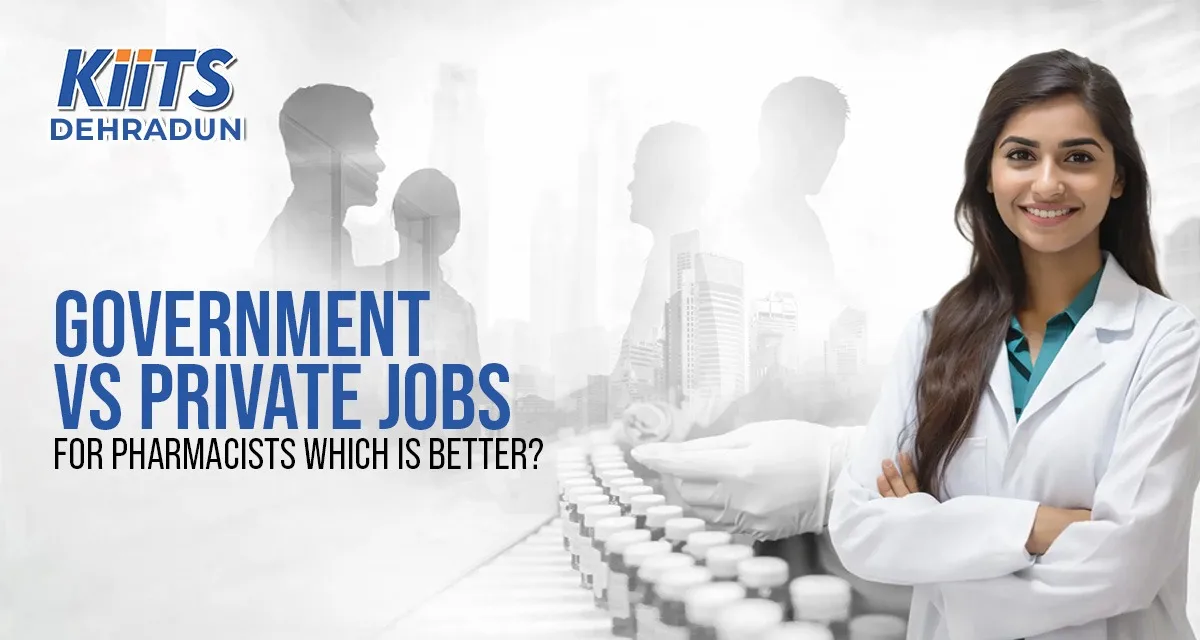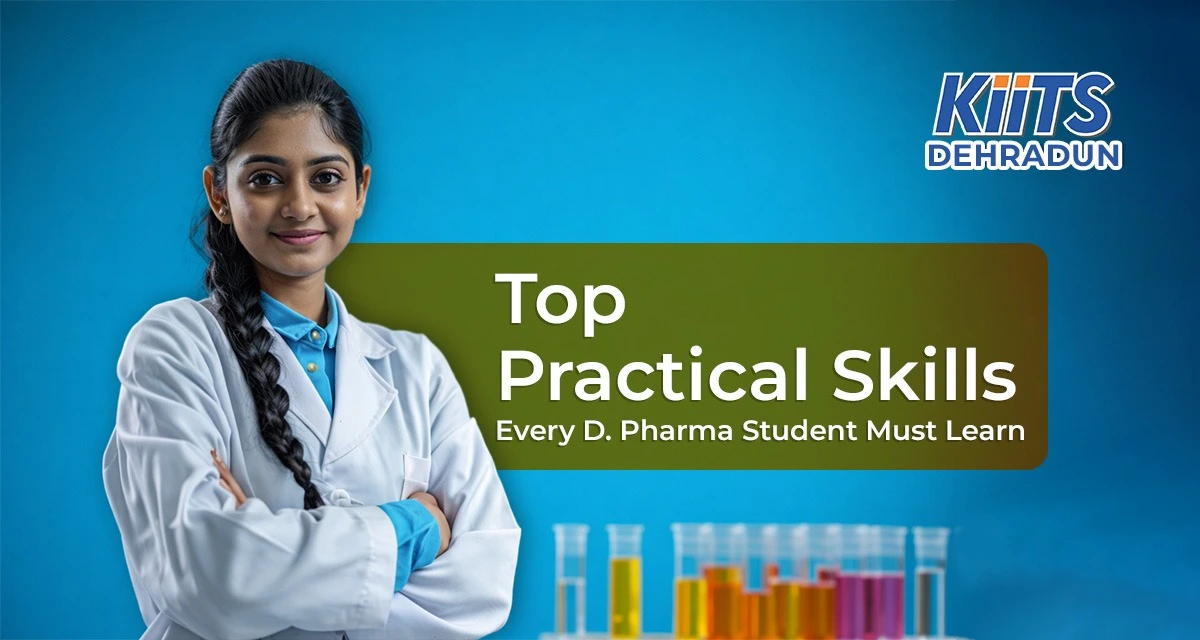Introduction
The field of pharmacy has undergone significant transformations over the past few decades, evolving from a primary focus on the preparation and dispensing of medications to a broader role in patient care and health services. As the scope of pharmacy practice expands, so too must the education and training of future pharmacists. Preparing the next generation of pharmacists involves more than just imparting knowledge; it requires fostering critical thinking, clinical skills, and a commitment to lifelong learning. This blog explores the current trends in pharmacy education, the challenges faced, and the innovative strategies being employed to equip pharmacists for the dynamic healthcare environment.
The Evolving Role of Pharmacists
Historically, pharmacists were seen primarily as dispensers of medications. However, the role of pharmacists has expanded to include direct patient care, medication therapy management, chronic disease management, immunizations, and health screenings. Pharmacists are increasingly integrated into healthcare teams, working alongside physicians, nurses, and other healthcare professionals to optimize patient outcomes. This shift necessitates a corresponding change in pharmacy education, emphasizing clinical skills, patient communication, and interprofessional collaboration.
Core Components of Pharmacy Education

Pharmacy education typically includes a blend of didactic learning, practical experience, and professional development. The core components are:
- Foundational Sciences: Courses in pharmacology, medicinal chemistry, and pharmaceutics provide the scientific basis for understanding drug actions, interactions, and formulations.
- Clinical Sciences: Clinical pharmacokinetics, pharmacotherapy, and disease state management courses focus on applying scientific principles to patient care.
- Experiential Learning: Practical experience through internships and rotations in various settings (community pharmacies, hospitals, clinics) allows students to apply their knowledge in real-world scenarios.
- Professional Skills: Communication, ethics, and leadership courses prepare students for the multifaceted roles they will assume as healthcare providers.
Trends in Pharmacy Education

Interprofessional Education (IPE)
Interprofessional education involves training students from different healthcare disciplines together. The goal is to promote teamwork and collaborative practice, which are essential for delivering comprehensive patient care. IPE programs often include joint coursework, simulation exercises, and clinical rotations where pharmacy students work alongside medical, nursing, and allied health students. This approach helps break down professional silos and fosters a collaborative mindset from the outset.
Simulation-Based Learning
Simulation-based learning uses advanced technology to create realistic clinical scenarios. This method allows students to practice clinical skills, decision-making, and patient communication in a controlled, risk-free environment. Simulations can range from virtual patients and computer-based scenarios to high-fidelity mannequins that mimic real patient responses. This hands-on approach enhances learning and confidence, preparing students for real-life clinical challenges.
Emphasis on Pharmacogenomics
Pharmacogenomics, the study of how genes affect a person’s response to drugs, is becoming an integral part of pharmacy education. With the rise of personalized medicine, understanding genetic variations and their impact on drug efficacy and safety is crucial. Pharmacogenomics courses teach students how to interpret genetic data and incorporate it into patient care, allowing for more personalized and effective treatment plans.
Focus on Patient-Centered Care
Modern pharmacy education emphasizes patient-centered care, which involves seeing patients as active partners in their own health. This approach requires pharmacists to develop strong communication skills, empathy, and cultural competence. Courses in patient counseling, motivational interviewing, and health literacy are designed to equip students with the skills needed to engage patients effectively and support them in managing their health.
Challenges in Pharmacy Education

Adapting to Rapid Advances in Healthcare
Healthcare is constantly evolving, with new drugs, technologies, and treatment protocols emerging regularly. Pharmacy education programs must continually update their curricula to keep pace with these changes. This requires ongoing collaboration with healthcare providers, researchers, and industry leaders to ensure that graduates are well-prepared for current and future practice.
Balancing Breadth and Depth
Pharmacy students need a broad knowledge base to cover the diverse aspects of the profession. However, they also need in-depth expertise in certain areas, particularly those related to patient care. Striking the right balance between breadth and depth in the curriculum is a challenge for educators. Integrating elective courses, specialized tracks, and advanced practice experiences can help address this issue.
Ensuring Access and Equity
Access to quality pharmacy education can be limited by factors such as geographic location, financial constraints, and socioeconomic status. Ensuring that all qualified students have the opportunity to pursue a pharmacy degree requires efforts to reduce financial barriers, provide remote learning options, and support underrepresented groups. Scholarships, grants, and mentorship programs are critical in promoting diversity and inclusion within the profession.
Innovations in Pharmacy Education
Online and Blended Learning
The COVID-19 pandemic accelerated the adoption of online and blended learning models in pharmacy education. These models combine traditional in-person instruction with online coursework, offering greater flexibility and accessibility. Virtual laboratories, online simulations, and interactive case studies are some of the tools used to enhance learning in a digital format. While in-person clinical experience remains essential, online components can complement and reinforce traditional learning methods.
Integrated Curriculum
An integrated curriculum breaks down traditional course silos, combining related content into cohesive learning modules. For example, a module on cardiovascular health might integrate pharmacology, pathophysiology, clinical practice, and patient counseling related to cardiovascular diseases. This approach helps students make connections between different subjects and understand their application in clinical practice.
Global Health Education
Global health education exposes pharmacy students to healthcare challenges and practices in different parts of the world. Study abroad programs, international rotations, and global health courses provide valuable insights into diverse healthcare systems, cultural differences, and global health issues. This exposure prepares students to work in an increasingly interconnected world and to address health disparities on a global scale.
The Future of Pharmacy Education

Lifelong Learning and Continuing Professional Development
The rapid pace of advancements in healthcare means that pharmacists must commit to lifelong learning. Continuing professional development (CPD) programs are essential for keeping pharmacists up-to-date with the latest knowledge and skills. Many pharmacy schools and professional organizations offer CPD opportunities, including workshops, conferences, online courses, and certification programs. Encouraging a culture of lifelong learning is crucial for maintaining competence and ensuring high-quality patient care.
Embracing Technological Innovations
As technology continues to transform healthcare, pharmacy education must also evolve. Emerging technologies such as artificial intelligence, machine learning, and big data analytics have the potential to revolutionize drug discovery, patient care, and pharmacy practice. Integrating these technologies into the curriculum will prepare future pharmacists to leverage them effectively in their professional roles.
Expanding Roles and Specializations
The role of pharmacists is expanding beyond traditional boundaries, with new opportunities in areas such as precision medicine, telehealth, health informatics, and regulatory affairs. Pharmacy education programs must adapt to these changes by offering specialized tracks and advanced training in emerging fields. This will enable graduates to pursue diverse career paths and meet the evolving needs of the healthcare system.
Conclusion
Pharmacy education is at a pivotal point, with the potential to shape the future of healthcare by preparing pharmacists to take on increasingly complex and varied roles. By embracing innovative teaching methods, fostering interprofessional collaboration, and committing to lifelong learning, pharmacy educators can equip the next generation of pharmacists with the skills and knowledge needed to thrive in a dynamic healthcare environment. The ultimate goal is to ensure that pharmacists are well-prepared to provide high-quality, patient-centered care and to contribute to the health and well-being of communities worldwide








